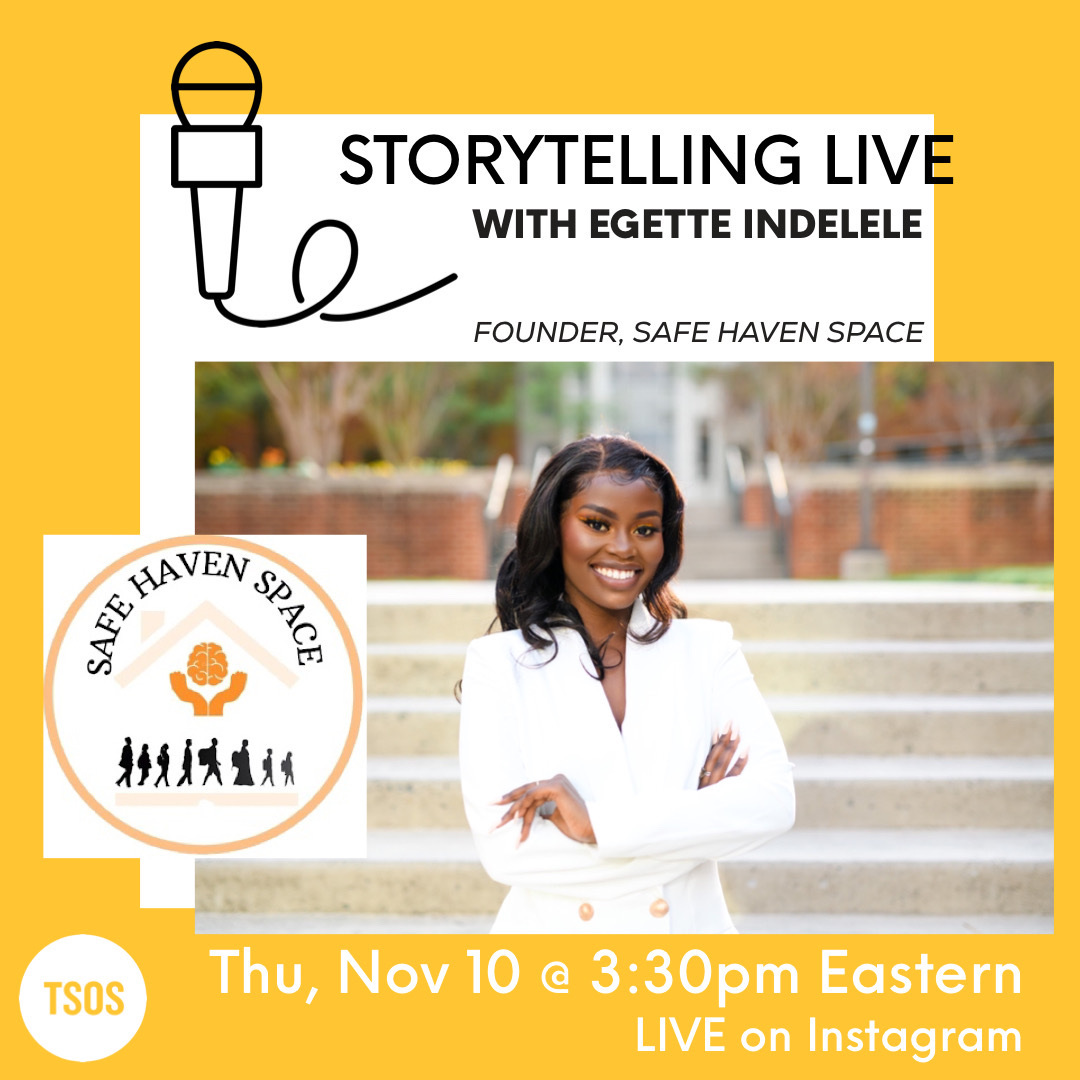
Egette was born and raised in a refugee camp in Tanzania, Africa. In 2021, she graduated with a B.S. in psychology from George Mason University. In 2022, she received her MA in psychology with a focus in Cognitive and Behavioral Neuroscience, also from George Mason. She was recently featured in Forbes on World Mental Health Day. She founded Safe Haven Space, to empower and educate refugee families in the US about mental health and wellbeing.
Recently, Our Director of External Media, Darien Laird, connected with Egette and asked her some questions about her goals, challenges, and personal motivation for founding Safe Haven.
Darien: Tell us more about Safe Haven Space. Where it started from, and the goals.
Egette - Safe Haven Space was at first, just an idea. It was meant to be a space where refugee and immigrant students could come and talk about the challenges they had. Especially those coming from areas that don’t welcome conversations about mental health. When I started college, there was an entrepreneurship program which I joined to see if this initial idea would actually work. We did intensive research for about 3 months…We reached out to other immigrant students to see if this is what they would want, or what they would have wanted when they came to the United States. Our research told us that it was. When we heard that, we were really excited because now it was no longer an idea. It was something we could push into an actual organization.
Currently, we still do the safe space. But now, we are adding services to that component. We bring in therapists who are culturally sensitive. We start with education - what is mental health, communication etc. And they then have the option to do one on one with a therapist. But we start with the community sessions.
Darien: Can you tell us about some of the barriers or challenges you are facing - when you introduce the idea of being concerned about mental health with refugee communities? In some communities it’s maybe culturally not something that is discussed, even in their homes.
Egette - Yes it’s a stigma. It’s important to be aware of the culture they are coming from and to educate in ways that each community can understand… We have to do surveys that ask questions like how do you cope with challenges? And how do you understand when you are being taught? We learn about the community first, and then implement what we learn into the education program specific to that community.
Darien: I would love you to share with us a little bit about a part of your story that makes this work so important to you.
Egette: As I said, I came from a family of refugees. They didn’t have a stable place at the beginning. Especially when my mom had me. She was coming from wars and different areas that were unstable and unhealthy. So, coming from a family whose mindset is still, “I gotta get out of this.” - still in the mindset of a war zone. Communication and talking about mental health was challenging. It can be hard to talk to someone who’s worried about if everyone’s eaten enough food, if the kids are going to school, if the bills are paid. Especially if you aren’t working in an area that’s providing everything the children need. My mom had a hard time meeting with us on the same level because she was worried about us physically and financially. I found it hard to learn about emotions, and have an emotional education. I think it’s important to learn about emotions so you can have better relationships. We want to add a parent component to the program.
Listen to the whole interview here.
Official Statement on the Detention of Refugees and Ongoing Community Violence
With another death in Minnesota and continued violence toward individuals and groups standing up for their communities, we acknowledge the profound fear and uncertainty people are feeling--not just locally, but across the country.
On top of this, there are reports that refugees invited and admitted to our country through the U.S. Refugee Admission Program are now being detained, meaning that our new friends and neighbors feel that fear most acutely.
Refugees have already fled violence and persecution once. They came here legally, seeking safety. In moments like these, we reaffirm our commitment to building communities where refugees and immigrants can live without fear. Where they can go to work, send their children to school, and build lives of dignity and belonging.
We call for due process, accountability, and humanity in all immigration enforcement operations. We call upon our leaders to demand the demilitarization of our neighborhoods and cities. And we call on all of us to continue the work of welcoming and protecting those who have been forcibly displaced from their homes.